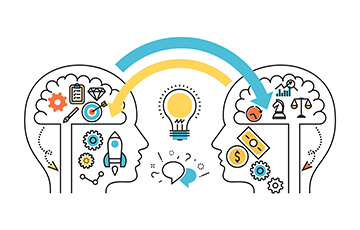Hi Everyone,
Recently, I have read Chapter 3 of Digital Humanities by Burdick, Drucker, Lunenfeld, Presnet, and Schnapp and I have been engaged with many questions by the authors, which one of the questions was very interesting:
What happens when anyone can speak and publish? What happens when knowledge credentialing is no longer controlled solely by institutions of higher learning?
Firstly, I think it is a bless that humankind is able to speak. Speaking has helped humans to communicate and allowed humans to talk and share their own thoughts. People were able to share their problems and through speaking people could understand each other even more and be able to help each other better. When a baby is crying, we cannot really understand why it is crying, we can only guess why that baby is crying. But once that baby grows up and learns the language, that person (baby) does not have (only) to cry to address the issue to the other person, it can now speak and tell what it is happening, and we can help that baby more accurately.
We, humans, now can speak and talk with other people. Nowadays, with the coming of the Internet, people can share their thoughts with a greater audience and can publish anything online. I think it is even better that people can now talk about whatever they want and can share whatever they want to, because it is a human right for a person to express themselves freely and be able to share their thoughts.
With these circumstances, nowadays, any human thoughts can be shared freely and is not really “controlled” by any organization. Especially “knowledge credentialing is not longer controlled solely by institutions of higher learning.” Knowledge is shared with anyone freely without any organization controlling it. That means we now have access to even a bigger pool of knowledge of others.
Because of lacking a institution of higher learning that controls the credibility of the knowledge, we, people, have check the credibility of the knowledge of our own. Of course, everyone is free to share any knowledge they would like to, so that knowledge might “correct” or “incorrect”, and it is the responsibility of the recipient of that knowledge to whether accept it or not. That recipient is can accept the given knowledge without any hesitations or if have any doubts, then the recipient can try to test it to check its credibility.
Even if this might pose more challenges to us, humans, at least we can now really freely share our own knowledge with others, and we have a bigger access to a bigger knowledge, without having any institutions filtering the knowledge and giving us only limited knowledge, the given pool of knowledge by the institution will have a bias, having chosen only some knowledge, and rejecting other knowledge. I think that is our right to freely speak and share and it is also our right to really decide what we accept and what we decline, as of knowledge.
However, I do not know much, I really think that we should try to know rather than not to know.
Have a good weekend,
JHA
